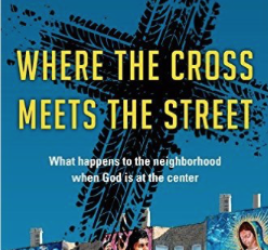In Kingdom Calling, Amy Sherman (2011) puts the cookies on the lower shelves when it comes to exploring and practicing theology of work. Though Sherman writes primarily to an audience of missional pastors and ministry leaders (Sherman, 2011, p. 21), the book is well suited for any Christian wanting to learn more about their calling in and to the workplace. Sherman was deeply impacted by a sermon from Tim Keller titled, Creation Care and Justice. Expounding on a phrase from Proverbs 11:10, “When the righteous prosper, the city rejoices” (NIV), the emphasis is made that the righteous are “those who put their own economic, social, and personal needs ahead of the needs of the community” (Sherman, 2011, p. 16). When the righteous (Hebrew tsaddiqim) understand and exercise God’s calling to seek the common good through utilizing their vocational powers, the city exuberantly celebrates because of what they have contributed. How Christians can walk this path and pastors can encourage and empower them is what this book is about.
Having read numerous books on theology of work and marketplace ministry, I found this work to bring a refreshing perspective and encouraging real-life illustrations. Viewing the outcome of vocational ministry through the lens of Proverbs 11:10 gives it new meaning and purpose in the urban context. The reflections on the depth of meaning of the word tsaddiqim provided a solid theological underpinning for the practical applications spread throughout the book. Sherman and her research partner spent a serious amount of time researching actual examples of righteous people who have caused their cities and communities to rejoice. I was amazed by the vast network of relationships that was reflected by the countless testimonials found in each chapter. The diversity of examples helped to see that the opportunities to practice righteousness through vocation are limitless. I found myself searching for and visiting a number of websites to see what the organizations and churches are doing today. A few examples of how churches manage vocational callings through online systems were no longer accurate. These church must have switched to internal systems or to more organic approaches. I discovered that Free Wheelchair Mission already is at work in Vietnam. Part 3 of the book, “Pathways of Vocational Stewardship” (Sherman, 2011, p. 140), I found most helpful. Sherman goes into depth how churches can deploy their “vocational power” (2011, p. 143).
Although my context of an international church in Hanoi, Vietnam, is very different from the many churches highlighted in the book, I am challenged to think how our church can improve the educating, equipping, and empowering of our members in their callings and vocations. I plan to think through the four pathways of vocational stewardship to see how the church can help members bloom, donate, invent and invest. Helping members to bloom where they are planted can be done through our Love Hanoi campaign, sermons, testimonies and prayers during Sunday services, workshops, small groups and one-on-one relationships. Helping members to donate their time and talents, to invent new solutions, and to invest in the church’s initiatives can be done through our CityPartners ministry. I am quite aware of the need for improvement to deploy our members more effectively in the world of work. Amy Sherman has provided both theology and practical tools to help my church move forward.
By Jacob Bloemberg
Sherman, A. L. (2011). Kingdom calling : vocational stewardship for the common good. Downers Grove, IL: IVP Books.




